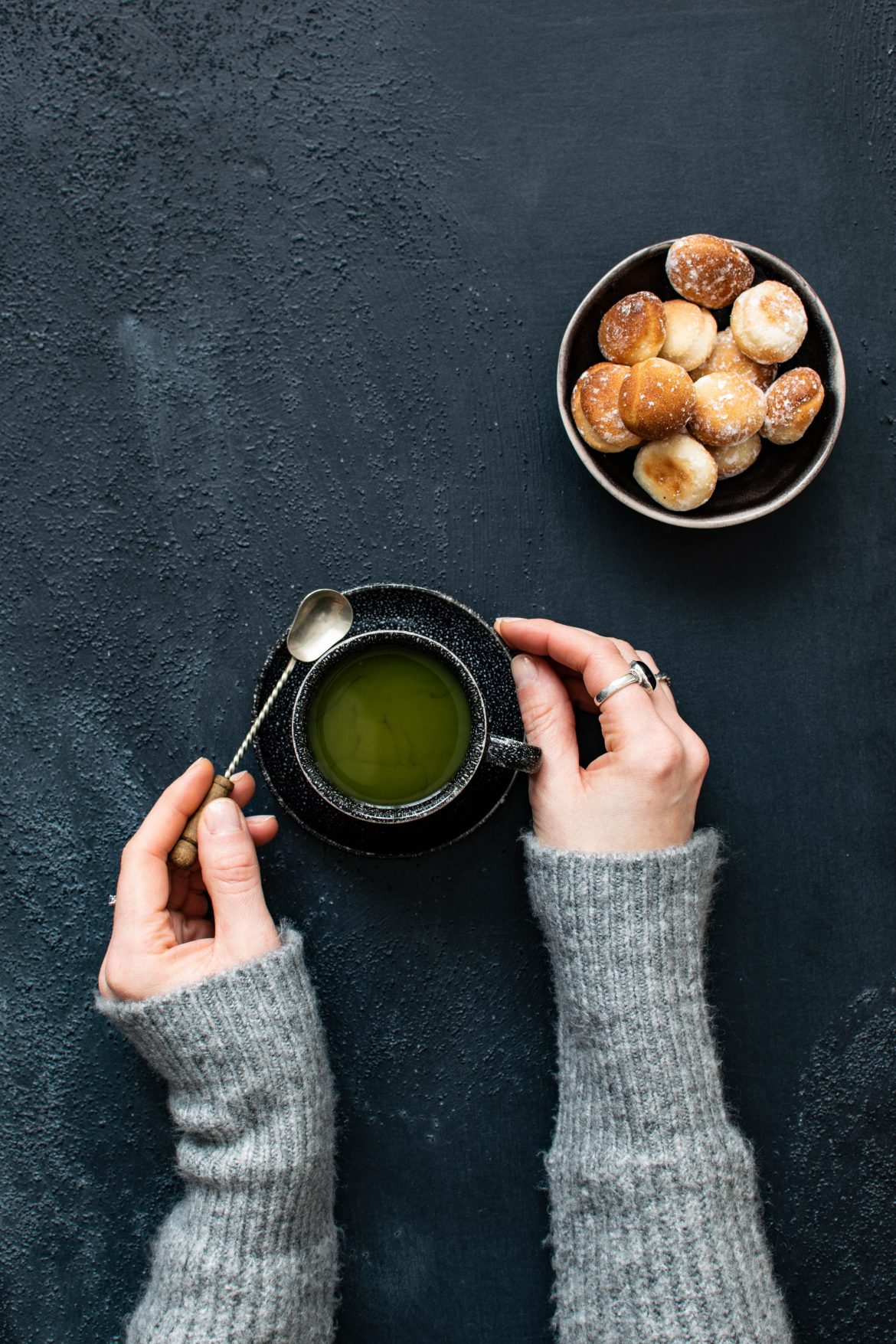Types of Tea
‘Real’ tea (as opposed to the many herbal varieties, including rooibos) is made from the dried buds and leaves of the Camellia sinensis plant. Teas are classified as green, white, oolong or black, based on their level of oxidation (reaction to oxygen). Once they are picked, the leaves quickly lose their colour and vibrancy, unless they are heated. Green tea is the least oxidised type of tea, which is why it has such a green colour and grassy taste. It is heated soon after it is picked; then it is dried to be used whole or finely ground to be put into teabags. Matcha, which is popular in Japan and catching on around the world, is made from green tea leaves that are grown in the shade before harvest. They are then very finely ground into a powder. Matcha powder can be dissolved in hot water or milk and looks like a beautiful bright green latte!
Green Tea
We all know green tea contains much less caffeine than coffee, but it has also been proven to aid in the performance of vital organ functioning. Some claims state the polyphenols in green tea can even help to inhibit the creation and growth of tumours, but this has not yet been proven. What has been proven is that regular, high consumption of green tea can help to protect you against lung cancer. Regularly drinking catechin (an antioxidant found in this tea) is associated with reduced body fat and improved bone density. Another benefit of green tea is its ability to improve muscle endurance during exercise and to improve fat oxidation. This is a double win if you’re trying to lose weight and need a healthy pick-me-up to power you through your next workout. Matcha has the same benefits as green tea, only more so. Rather than brewing a cup of tea and then throwing away the leaves, you are grinding up and drinking the entire leaf, along with all of those antioxidants.
Health benefits
Your brain
Caffeine increases the firing of brain cells and the concentration of certain neurotransmitters, for better mood, memory and reaction time. Green tea combines caffeine with the amino acid L-theanine, providing a more stable source of energy and concentration than coffee.
Your teeth
Streptococcus mutans is the bacteria that causes plaque build-up in the mouth, leading to cavities and tooth decay. Catechins in green tea stop this bacteria in its tracks.
Your heart
Green tea helps to control the main causes of heart disease: high cholesterol and high blood pressure.
ALSO SEE 5 SIMPLE HABITS TO SHAKE UP YOUR DAILY ROUTINE
[Image by Monika Grabkowska via Unsplash]

